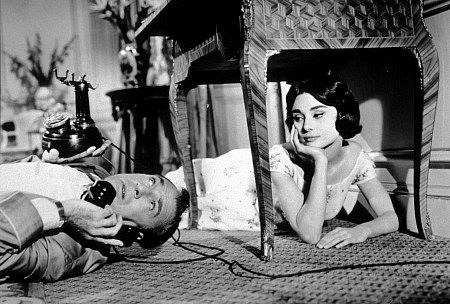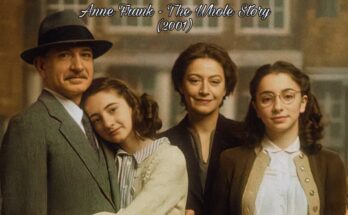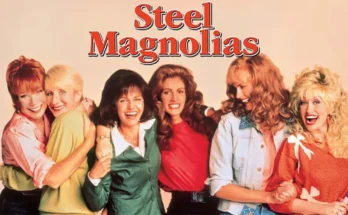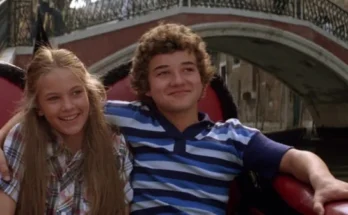Genre: Romantic Comedy | Classic Hollywood | Lighthearted Romance
Love in the Afternoon is a charming, sophisticated romantic comedy from the golden age of Hollywood, directed by the legendary Billy Wilder—one of cinema’s greatest craftsmen of wit, innuendo, and bittersweet romance. Released in 1957, this film is a lighter, more European-flavored entry in Wilder’s catalog, pairing the luminous Audrey Hepburn with the ever-suave Gary Cooper in a May-December love story that feels like a whimsical fantasy set under the Parisian sun.
The story follows Ariane Chavasse (Hepburn), a young, curious cello student in Paris who lives with her widowed father, Claude (Maurice Chevalier), a private detective who specializes in exposing the affairs of philandering husbands. When Ariane overhears her father investigating the notorious American playboy Frank Flannagan (Cooper)—a man known for seducing married women—she becomes fascinated by this larger-than-life figure and decides to intervene when one jealous husband threatens to kill Flannagan.
What begins as a playful ruse quickly spirals into a complicated romance. Ariane, pretending to be as worldly and mysterious as the women Frank usually courts, visits him in secret, always at “five o’clock in the afternoon.” She spins tales of countless lovers to appear sophisticated and keep him intrigued, while Frank, amused and charmed, finds himself falling for this innocent young woman who is nothing like the glamorous socialites he usually pursues.
Billy Wilder’s script brims with sly humor and double entendres, but beneath the elegant surface, there’s a gentle melancholy that gives the film its warmth. Hepburn is perfectly cast—radiant, wide-eyed, and mischievous, she brings a lightness and sincerity to Ariane that makes the improbable love story believable. Gary Cooper, though visibly older than his role perhaps required, still carries the weary charm of an aging rake whose cynicism is slowly undone by Ariane’s sweetness.
The setting—Paris in all its dreamy, black-and-white romance—adds to the film’s fairy tale atmosphere. Wilder, ever the sophisticated storyteller, stages the lovers’ secret meetings with a breezy, continental elegance, helped along by Maurice Chevalier’s delightful narration and wry asides as Ariane’s bemused father.
Love in the Afternoon is a film about innocence brushing up against experience, about the bittersweet illusions we spin when we fall in love with someone out of reach. Though not as sharp as some of Wilder’s other classics like The Apartment or Some Like It Hot, it’s a beautifully crafted ode to playful deception and the timeless allure of Parisian romance.
Today, the film lives on as a minor but beloved entry in Hepburn’s iconic filmography—a gentle reminder of a time when movie romances were filled with orchestras, sly smiles, and stolen afternoons in the City of Light. If you’re in the mood for an old-fashioned love story with elegance and charm to spare, Love in the Afternoon is a sweet escape into a bygone era of Hollywood sophistication.



